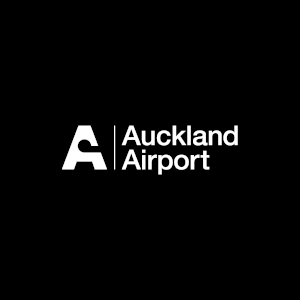(IN SHORT) Auckland Airport has announced its partnership with Swedish electric airplane manufacturer Heart Aerospace by joining the company’s advisory board. The collaboration aims to advance innovation in sustainable aircraft, particularly focusing on Heart Aerospace’s ES-30, a 30-seat electric hybrid aircraft designed for short journeys with a rapid 30-minute recharge time. Auckland Airport will provide valuable insights into charging options and infrastructure development. This initiative is part of Auckland Airport’s commitment to minimizing aviation’s environmental impact and supporting decarbonization efforts in air travel. The airport’s extensive upgrade includes the installation of aircraft charging facilities and a new integrated terminal, aligning with its goal to achieve net-zero carbon emissions by 2030. Heart Aerospace’s Industry Advisory Board, comprising global aviation stakeholders, will facilitate collaboration and innovation to drive the electrification of air travel.
(PRESS RELEASE) Auckland, New Zealand, 2023-Nov-8 — /Travel PR News/ — Auckland Airport has announced a collaboration with Swedish electric airplane maker Heart Aerospace, joining the company’s advisory board to help propel innovation in sustainable aircraft.
Heart Aerospace is underway developing the ES-30, a 30-seat electric hybrid aircraft designed for short journeys and taking about 30 minutes to recharge via fast charger.
Auckland Airport will work with Heart Aerospace to share information as the technology develops, including around charging options and infrastructure. The airport is currently undergoing its most significant upgrade in history, including the installation of aircraft charging facilities (ground power units) in the new airfield to the west of the airport, and as part of the development for a new integrated terminal.
Chief Sustainability and Master-Planning Officer Mary-Liz Tuck said: Auckland Airport is taking proactive steps to help minimise the impact of aviation on the environment, including building greater resilience into the airfield to support the decarbonisation of aviation.
“We’re thrilled to be joining Heart Aerospace’s industry advisory board and contributing to the development of electric aircraft.
“The electrification of air travel and the decarbonisation pathway for aviation is certainly not straight forward, there’s no instant answer. It’s about taking steps over time and working together with the ecosystem of partners to help create solution-based changes.
“The start of electric aircraft will likely be in regional flights and as New Zealand’s largest airport with great connectivity around the whole country, we’re excited to be a part of this,” she said.
Heart Aerospace’s Industry Advisory Board consists of airlines, governments, leasing companies and airports from around the world, with London City Airport and Swedavia Airports as part of its member base. The board aims to bring opinions and global thinking together from the aviation eco-system, and will meet three to four times a year.
President and Chief Commercial Officer at Heart Aerospace, Simon Newitt, said: “Auckland Airport has taken a holistic view on decarbonisation and all members now have the opportunity to learn from this approach and shape an ecosystem that enable the electrification of air travel. We’re delighted that Auckland Airport is joining our board and we look forward to collaborating with them.”
The ES-30 is in its pre-liminary design phase and the team are identifying key suppliers and technology solutions. Heart Aerospace’s aim is to have a fully electric zero emissions range of 200 kilometres, an extended hybrid range of 400 kilometres with 30 passengers and flexibility to fly up to 800 kilometres with 25 passengers, all including typical airline reserves.
Heart Aerospace has a total of 250 firm orders for the ES-30, with options and purchase rights for an additional 120 planes. The company also has letters of intent for a further 91 airplanes.
Ms Tuck said sustainability is incredibly important to Auckland Airport and is considered across every level of the business.
“We’re committed to reducing carbon emissions across our operations and infrastructure at Auckland Airport and we’ve disclosed a decarbonisation pathway to achieve net zero carbon emissions by 2030.
“We’re proud of the work we’re doing in this space so far, for example commencing the transition of our terminal air conditioning system from gas to electric this year, as well as a solar array going atop the Transport Hub, which is currently under construction and will have a 14,000m2 rooftop. We’re looking forward to future innovation and working with Heart Aerospace and its board members in this space.”
Notes to Editors
- Auckland Airport has disclosed a decarbonisation pathway to achieve net zero carbon emissions by 2030. This pathway targets a 90 per cent reduction in scope 1 and 2* carbon emissions from a 2019 baseline, and is aligned with 1.5oC.
- *Scope 1 refers to direct GHG emissions produced as a result of the airport’s operations and are owned or controlled by the airport, e.g. petrol and diesel and natural gas.
- *Scope 2 refers to indirect emissions associated with the generation of electricity that the airport buys from the grid.
- Auckland Airport is an active member of Sustainable Aviation Aotearoa, a group which brings together government and the private sector to tackle the issue of how we can lower emissions from aviation. The group will help ensure Aotearoa’s aviation system is ready to adopt new technologies such as sustainable aviation fuel and electric aircraft.
Media Contact:
Laura Platts
Laura.platts@aucklandairport.co.nz
021 040 5859
Source: Auckland Airport
###

